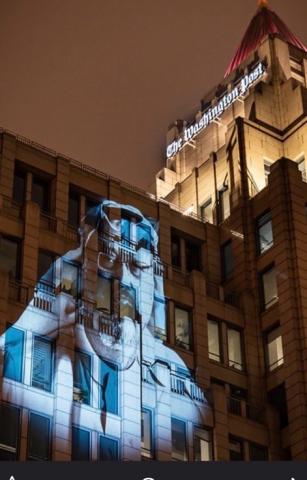
The infamous October 2 date marks the second anniversary of the murder of Saudi journalist Jamal Khashoggi at his country's consulate in Istanbul on October 2, 2018.
Jamal Khashoggi, a Saudi journalist, was a dissenting voice in the Saudi government. For decades, Khashoggi had maintained close ties with the Saudi royal family, most notably as a media advisor to former Saudi intelligence chief Prince Turki bin Faisal. But with the arrival of Mohammed bin Salman ( MBS) to power in 2015, Khashoggi was forced to leave the country. Khashoggi chose to take refuge in Washington DC in 2017, and became a columnist for the Washington Post and commentator on Saudi politics in the international media. The journalist was staying regularly in Turkey where he had decided to take up residence with a view to remarriage with a Turkish national, but during an appointment at the consulate of his country to establish official documents, his fiancee who was waiting for him outside the consulate never saw him come out. It was later established by the Turkish authorities that Khashoggi was assassinated by lethal injection and dismembered by a commando group of about 15 men who had come specially from Saudi Arabia for this fact.
From the outset, Alkarama followed the case of Saudi journalist Jamal Khashoggi on October 10, in partnership with ALQST and Reporters Without Borders and wrote to the United Nations Working Group on Enforced or Involuntary Disappearances, calling on it to intervene urgently on the case of journalist Khashoggi.
Although the Saudi Kingdom has acknowledged the crime of the men who murdered the journalist, it continues to deny the involvement of Crown Prince MBS in the murder of Jamal Kashoggi and maintains that the perpetrators acted without the approval of the Crown Prince while the The journalist's corpse remains, to this day, still untraceable.
However, a UN report led by Agnès Callamard, United Nations Special Rapporteur on extrajudicial, summary or arbitrary executions, questions the direct involvement of Crown Prince MBS in that case.
Khashoggi's assassination is actually just the tip of the iceberg of a widespread crackdown on all dissent and freedom of expression in the Kingdom of Saudi Arabia, where over than 143 people from all over the world from different segments of society, including members of the royal family, human rights defenders, businessmen, researchers and public figures are subject to arbitrary arrest and detention.
Saudi exiles have expressed their fear that Khashoggi's assassination is on the one hand a clear warning that no criticism of the kingdom, even outside the country will be tolerated and on the other hand an example of the cruelty with which the regime punishes any dissent, even peaceful. During the UPR sessions of November 5, 2018 on the Kingdom's human rights record, discussions focused on the case of the assassination of Saudi journalist Jamal Khashoggi, and the majority of the recommendations made to in this regard called for an independent and thorough investigation into this murder. On March 14, 2019, the United Nations Human Rights Council formally adopted the final results of the Universal Periodic Review of the Kingdom of Saudi Arabia, with the Kingdom of Saudi Arabia having received a total of 258 recommendations on a a number of issues, including the death penalty, torture and violations in the context of the fight against terrorism, the right to freedom of expression, the male guardianship system and the assassination of Jamal Khqshoggi. But in September 2020, in a trial presented as the final verdict, of those accused of Jamal Khashoggi's murder, 5 of them had their death sentences overturned and were sentenced to prison terms. Special Rapporteur Agnès Callamard called the trial "unfair" while Turkey says it does not intend to stop there in this case. In September 2020, in a trial presented as the final verdict, of those accused of Jamal Khashoggi's murder, 5 of them had their death sentences overturned and were sentenced to prison terms. The Special Rapporteur Agnès Callamard called the trial "unfair" while Turkey says it does not intend to stop there in this case.
